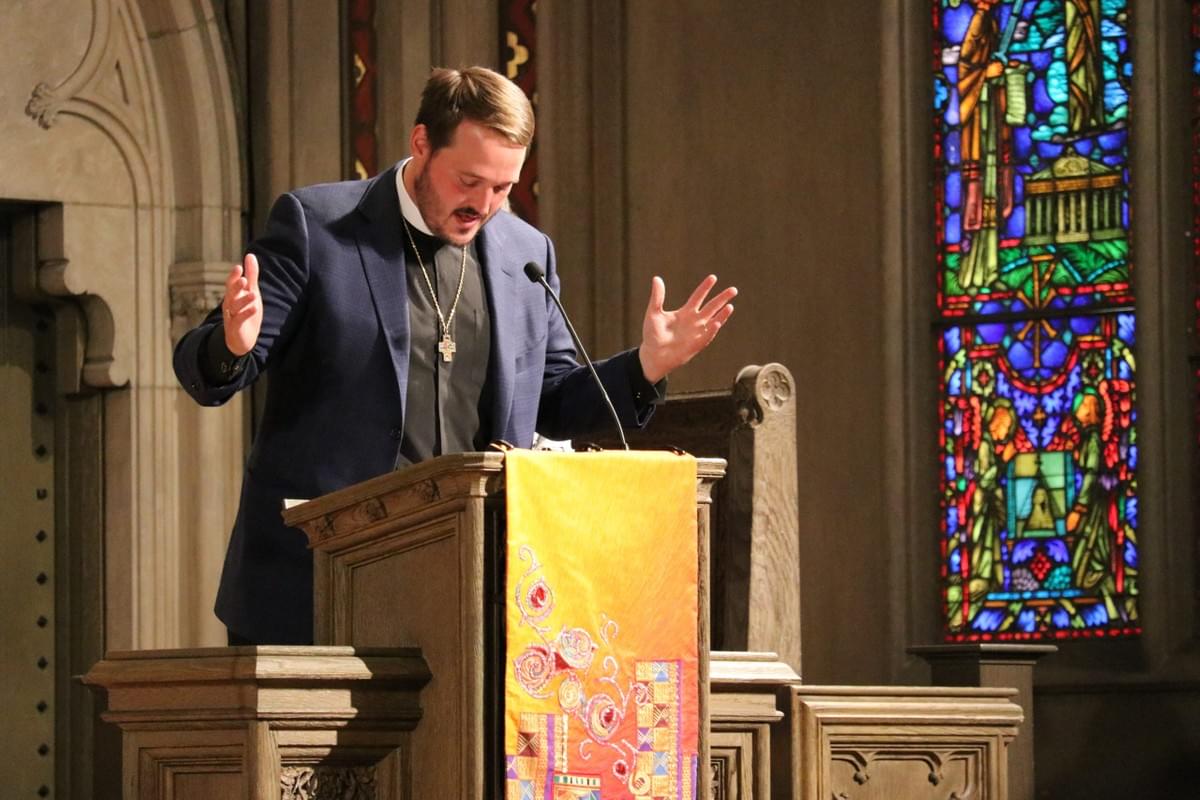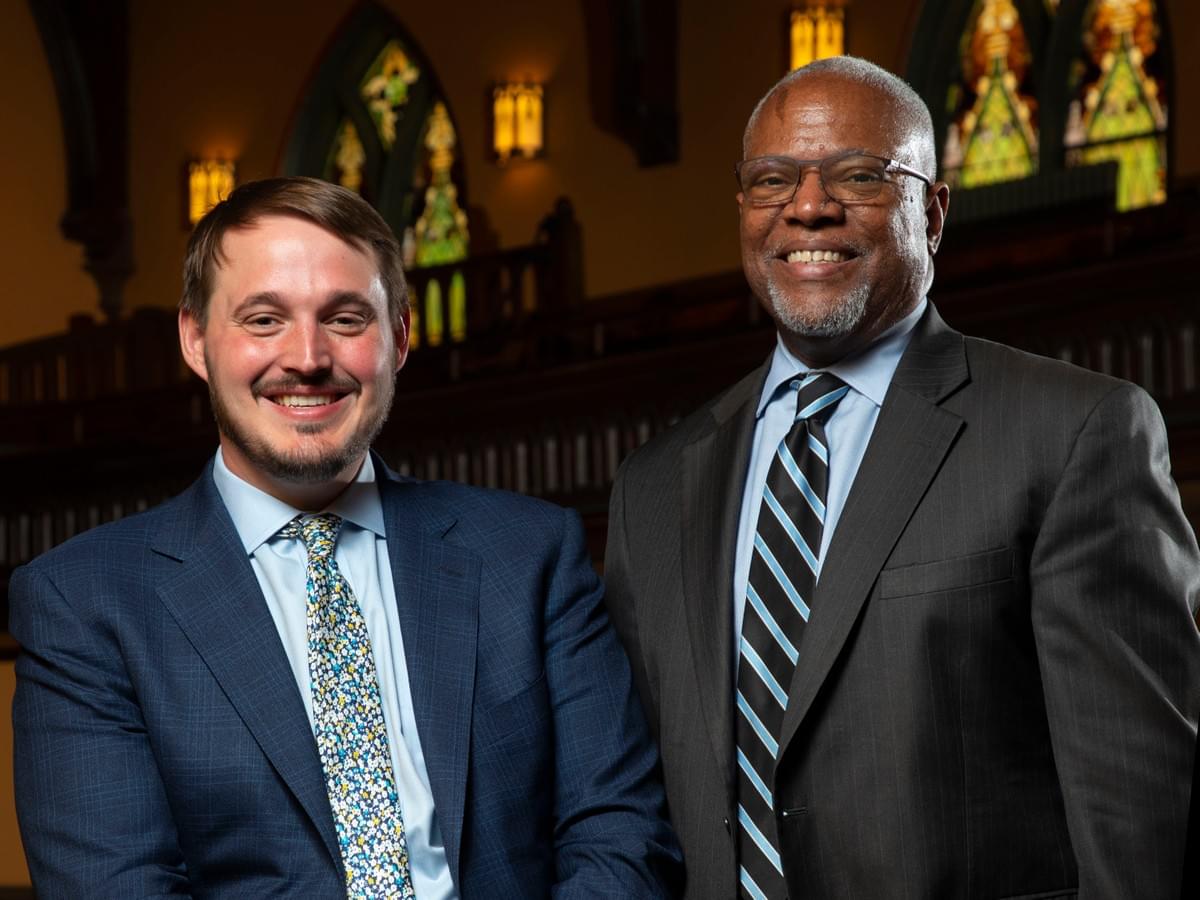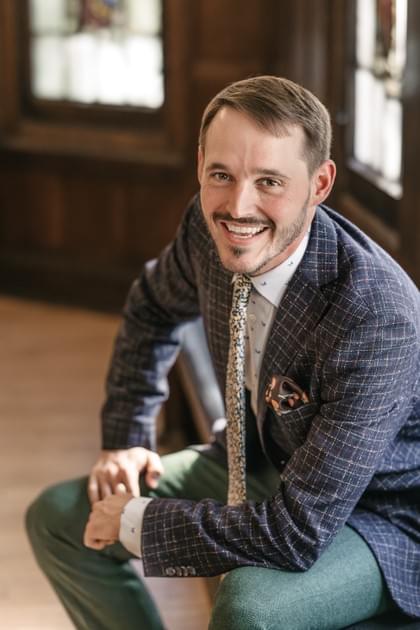
Rev. Michael Woolf, ThD
Pastor
Activist
Theologian
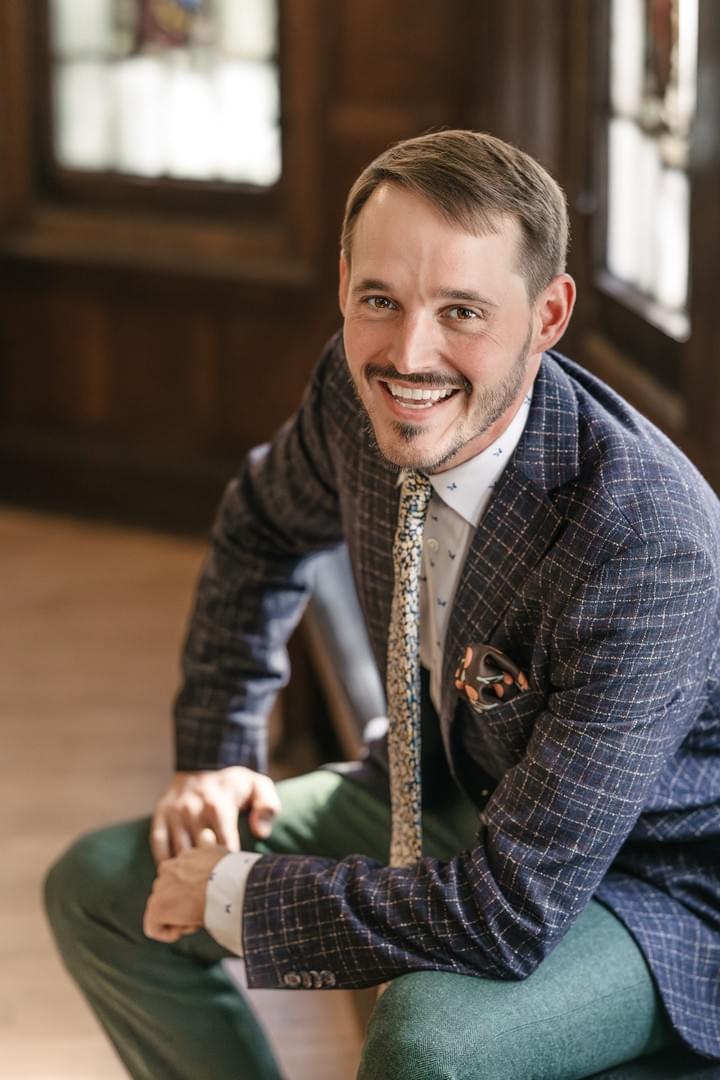
About Michael
Leading with Ethics, Listening Across Faiths, Serving with Distinction
The Rev. Dr. Michael Woolf (he/him) holds a Doctor of Theology (ThD) degree from Harvard Divinity School. As an ordained American Baptist Churches USA and Alliance of Baptists pastor, he serves as the Senior Minister at Lake Street Church of Evanston in Evanston, IL, a progressive congregation with a commitment to social justice and interfaith dialogue. He also serves as Co-Associate Regional Minister for White and Multicultural Churches with the American Baptist Churches of Metro Chicago region. Before that, he served rural and suburban churches in Massachusetts.
Michael's ministry has won numerous awards, including the Edwin T. Dahlberg Peace and Justice Award, the highest honor bestowed by the American Baptist Churches USA and American Baptist Home Mission Societies. First awarded to Martin Luther King, Jr. in 1964, the award honors outstanding work for peace and justice. In 2025, he was named the Distinguished Fellow in Ethical Leadership by the Fellowships at Auschwitz for the Study of Professional Ethics.
Michael's first book, Sanctuary and Subjectivity: Thinking Theologically About Whiteness in Sanctuary Movements, is part of T&T Clark's Studies in Social Ethics, Ethnography and Theologies series. His second book, Confronting Islamophobia in the Church: Liturgical Tools for Justice, is available from Judson Press in January 2026.
His writing has appeared in The Christian Century, Sojourners and The Christian Citizen, and he contributes to Journeys, a lectionary commentary and adult Bible study published by Judson Press, and his activism for immigration justice and sanctuary has been featured on CNN and The Wall Street Journal.
What I Do
Faith Meets Justice
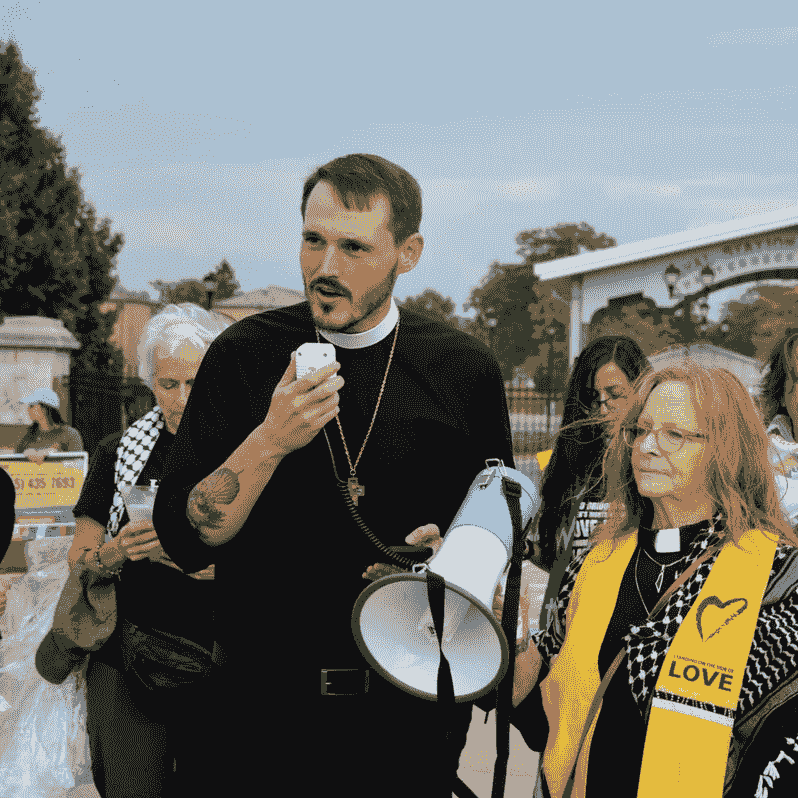
Sanctuary
Michael is a recognized scholar and activist on the sanctuary movement and has appeared on CNN as a faith-based comentator in support of immigration justice.
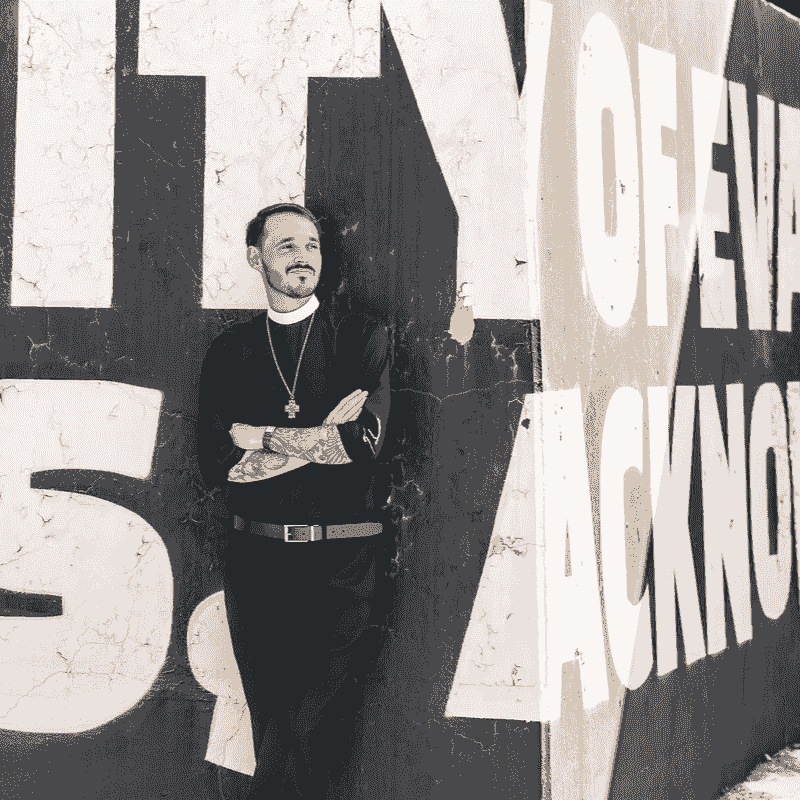
Reparations
Michael's work on reparations has been featured in The Christian Century, and he is a sought-after workshop leader for white churches with complicated racial histories.
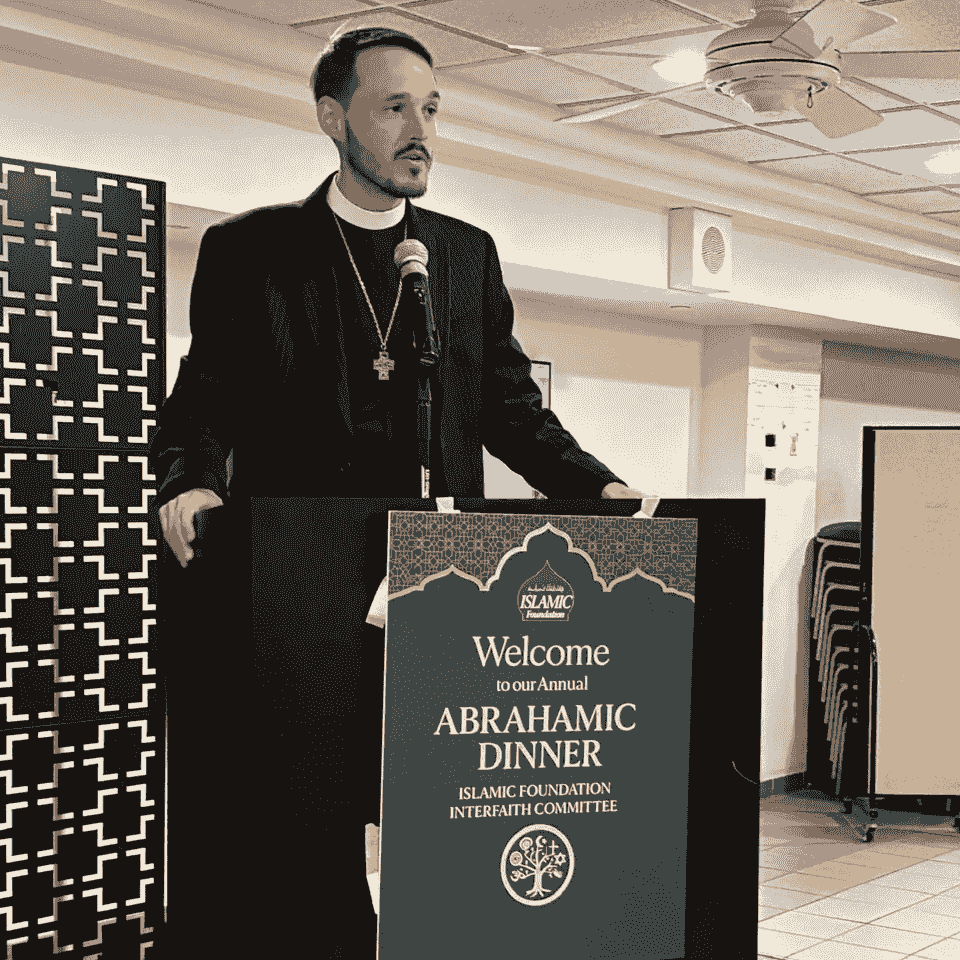
Islamophobia
Michael co-founded Challenging Islamophobia Together Chicagoland with his spouse, Rev. Dr. Anna Piela, and works to help Christians fight anti-Muslim hate.
Sermons I'm Proud of
Once in awhile, you preach a really good one
Sermon on CNN
Not every sermon is preached in a church. I consider this interview with CNN's Laura Coates Live to be one of my most important sermons because of the audience that it reached. My faith tells me that what we do or withhold from the most vulnerable in our midst, we do or withhold from God. The only real question is, would you let them deport Jesus?
"Bend the Arc"
Preaching the Sunday after Trump's election is no easy task, but these difficult times show us precisely what Christians we will be. Equal parts hope and a call to justice in the small realm that we can control, this message was shared widely throughout the United States in the weeks after the election.
"A New Luminous Body"
It's Easter, so that means that we turn our attention to one thing in particular: resurrection. It might surprise you that, historically, Jesus is not the only person that people claimed rose from the dead. The phenomenon litters the pages of ancient texts, but Jesus' story is different, because his story invites us to share in that resurrection power. Our mistake is that we often talk about resurrection as a thing that happened 2000 years ago, but the truth is not that resurrection happened, but that it happens in our world today. People stumble out of the tombs of trauma, addiction, and loneliness. Life is called from dead places.
"Jesus' Woody Guthrie Moment"
Palm Sunday is my favorite Sunday of the year. As a kid, I used to make the palms into swords, but as an adult I value Jesus' willingness to disappoint his followers and refuse the political revolution that people wanted him to pursue. In riding in on a donkey, we can imagine the animal with a bumper sticker akin to the writing on Woody's guitar - "this machine kills violent messianic hope."
"The Point of Religion"
I'll confess that I don't normally tell people I'm a pastor on an airplane; the conversations often get very weird very quickly, but if I were to explain why I'm religious, this would be what I would say. We are a people of stories, and we can sometimes have this sense that we are looking back on these stories and that we made them, but the opposite is true: it is the stories that make us.
The Foundations of my ministry
Things I've picked up over the years
Preaching
My preaching is rooted in a text, but always strives to attend to the issues of today. I delight in placing Christian scripture in conversation with texts from other religions, seeing how the questions, answers, and images from both either align or depart from one another. I am rarely authoritative; rather, I invite questions and help my congregations pursue their own quest for meaning-making. My faith is sustained by questions, not answers.
Fundraising
I started ministry with little understanding of how church finances can help or hinder the vision of churches. Seeing a growing edge in my ministry, I attained a certificate in religious fundraising from the Lake Institute on Faith and Giving, and used those skills at Lake Street Church of Evanston to put the community on the right track by increasing giving by 20%. Giving is fundamentally a faith question, and I invite people to financially partner with my communities as a spiritual act.
Organizing for Justice
In seminary I served as a seminarian organizer for Interfaith Worker Justice in Boston, MA, where I learned valuable skills in connecting faith congregations to issues of labor justice. I am passionate about immigration justice, gun violence, racial justice, and LGBTQ+ equality. Importantly, I do not leave my congregation behind when I lead on these issues, inviting them to consider what our faith demands of us in these difficult times.
Spiritual Care and Counseling
One of the great privileges I have in ministry is accompanying people in moments of great transition in their lives, whether that is birth, death, marriage, divorce, or any other moment of discernment that we embark on as human beings. Whatever happens in the life of my congregants, I am there to lend a listening ear, connect congregants to spiritual resources, and help community members obtain the support they need through social programs.
Mediation
In church, conflict is a natural part of life together - it it what we do with it that counts. When I began my ministry, I felt ill equipped to bring together the parties of disputes that had turned acrimonious and personal. After earning a certificate in Mediation from the Lombard Mennonite Peace Center, I have successfully resolved several disputes that would have impeded the ministry of my congregation. The thing I'm most proud of is the relationships that have been restored from this important work.
Formation and Discernment
One of the great joys of my ministry is connecting people of faith with the resources they need to find purpose. I applied for and received a Palmer Grant from the American Baptist Churches USA to develop The Passion Project, which hosted conversations with philosophers, artists, musicians, and social justice advocates about their passion. Helping people discover the power of vocation in their own life continually renews my own sense of calling.
Michael in the media
Interviews with me and news articles about what I do
Photo credit: Silma Suba
"On October 14, 2023, a six-year-old Palestinian-American boy, Wadea Al-Fayoume, was stabbed 26 times to his death by his family’s landlord, Joseph M. Czuba, in Plainfield, Illinois, in an apparent anti-Muslim hate crime. Seven months after Al-Fayoume’s murder, on May 19, a sunny Sunday afternoon in Chicago, over 50 community members gathered inside the stained-glass chapel of the First United
Methodist Church of Chicago to host an interfaith memorial service in Al-Fayoume’s honor. The tall skyscraper church, also called The Chicago Temple, stands at the corner of Washington and Clark in downtown Chicago.""Leaders of the Christian,Jewish, and Muslim faiths in the Chicago area came together Monday night to call for an immediate ceasefire in Gaza. Sheikh Hassan Aly, imam anddirector of religious affairs at the Mecca Center in Willowbrook; Rabbi Brant Rozen, founding rabbi of the synagogue Tzedek Chicago and the Rev. Dr. Michael Woolf, senior minister at the Lake Street Church of Evanston, all pushed for peace in the war before Israel and Hamas."
"The war in Israel andPalestine is not only a humanitarian crisis – it is a moral, and it is a
spiritual one," said Woolf.“In our increasingly separated and polarized society, we celebrate the prophetic and courageous witness and leadership of pastors Nabors and Woolf in leading their congregations toward racial justice and reconciliation,” said Dr. Jeffrey Haggray, executive director of ABHMS and CEO of Judson Press.
“In their pursuit of reparations and the restoration of the relationship of their two congregations, pastors Nabors and Woolf exemplify the pursuit of peace and justice that was the hallmark of the life and ministry of Edwin T. Dahlberg,” said the Rev. Dr. Jamie Washam, president of ABHMS’ board of directors.
“I know it’s tough to acknowledge some of this history,” explains Dr. Woolf, in Evanston, “but we can get past the initial sort of anger at being challenged by it; then we have an immense opportunity for white members to have a redemption arc, to be able to talk frankly about race in a way that can be useful.”
Further reporting can be found here and here.
Contact
Like what you see? Feel free to reach out.
© 2019





